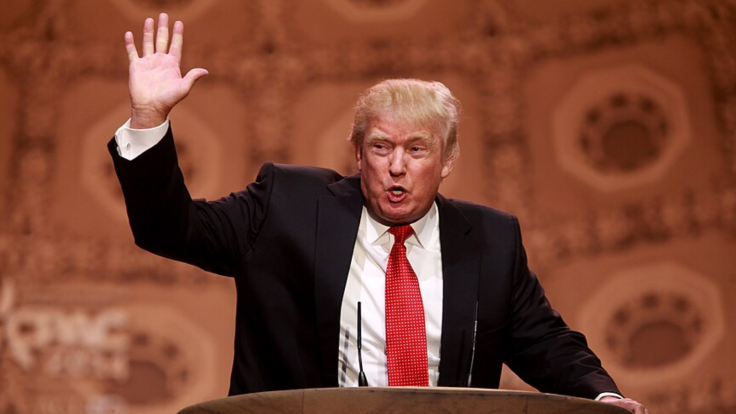Epstein Vote: Trump's U-Turn Sparks Urgency to Reveal Names Linked to the Scandal
Epstein Vote: Trump's U-turn drives urgent push to reveal key names in the Epstein scandal.

In a significant reversal that has drawn considerable attention in Washington, President Donald Trump's sudden support for the House vote to release Jeffrey Epstein's files has ignited a race to uncover names intertwined with one of the most high-profile scandals of the decade.
The U-turn arrived after months of debate in Congress and mounting public outrage. For weeks, Mr Trump resisted efforts to force the Justice Department to release its extensive trove of documents related to Epstein, the financier who died in jail in 2019 while awaiting trial for the sex trafficking of minors.
Yet on Monday, faced with growing bipartisan consensus and relentless survivor advocacy, he urged his party to 'back the measure that would compel the Justice Department to release the Epstein files.'
Trump's Sudden Change of Heart
The president's reversal surprised allies and critics alike. Until just days before the House vote, Mr Trump had called the quest for disclosure a 'hoax,' warning it would 'detract from the great success of the Republican Party.'
Sources close to the Republican leadership admitted defeat: 'Both Trump and [House Speaker] Johnson failed in their efforts to prevent the vote,' reports The Guardian, noting that Trump finally said 'he will sign it if it passes the Senate.'
Mr Trump's change of stance prompted immediate action in the House. Instead of waiting for the usual procedures, Speaker Johnson moved to hold the vote with a required two-thirds majority—a move more often reserved for urgent national matters.
'None of us want to be accused of not being for maximum transparency,' Mr Johnson remarked, though he raised concerns about possible unintended consequences for victims and whistleblowers.
Survivors Demand Truth
Tuesday saw survivors of Epstein's abuse rally outside the Capitol, demanding transparency and justice. Bundled against the cold, they shared stories of 'surviving the trauma and then surviving the political conflicts that surround it.'
One survivor, Jena-Lisa Jones, made a direct appeal: 'I beg you, Donald Trump, please stop making this political. '
This pressure from survivors helped push hesitant lawmakers into action. The sentiment was echoed by House Democratic leader Hakeem Jeffries: 'The survivors and the American people deserve full and complete transparency as it relates to the lives that were ruined by Jeffrey Epstein.'
Names, Power, and Political Fallout
The urgency now is palpable. The bill would force the Justice Department to release all files and communications related to Epstein within 30 days, including details about powerful individuals and government figures.
The bill also forbids redacting information 'due to embarrassment, reputational harm, or political sensitivity, including to any government official, public figure, or foreign dignitary.' Only details about victims or ongoing federal investigations may be withheld.
A separate House investigation has already begun to unearth thousands of pages from Epstein's estate showing 'connections to global leaders, Wall Street powerbrokers, influential political figures and Trump himself.'
Recent reporting in The New York Times reveals that Epstein 'cast himself as a Trump insider and wanted to leverage potentially damaging information about the president and his business connections.'
Democrats have also released emails in which Epstein allegedly wrote that Mr Trump 'knew about the girls.'
What Happens Next?
The House vote is being called a 'historic disclosure decision' by observers, but challenges remain. The Senate must still approve the measure, and some warn of roadblocks.
Senate Majority Leader John Thune has been cautious, saying he trusts the Justice Department to decide what information should be released.
As the process unfolds, the stakes are high. The coming weeks may provide answers that survivors have long demanded and could reveal the extent to which powerful figures were connected to Epstein's criminal activities.
© Copyright IBTimes 2025. All rights reserved.





















